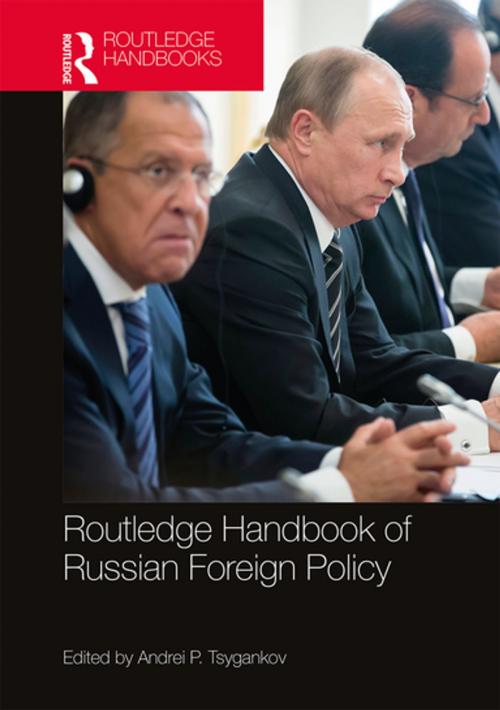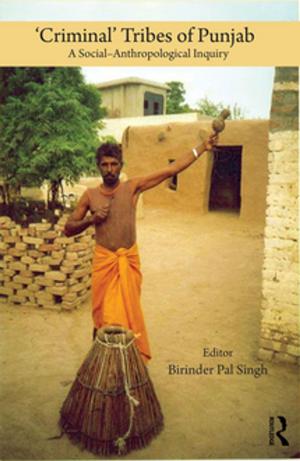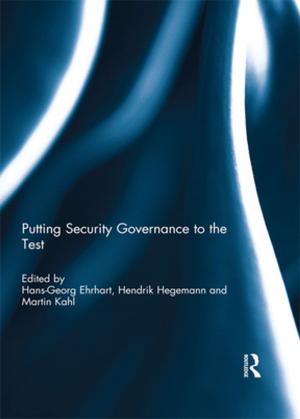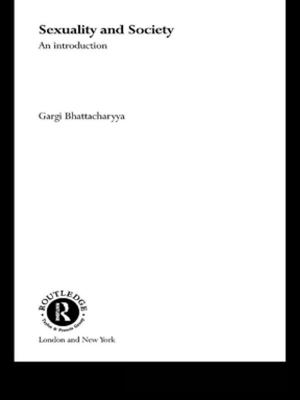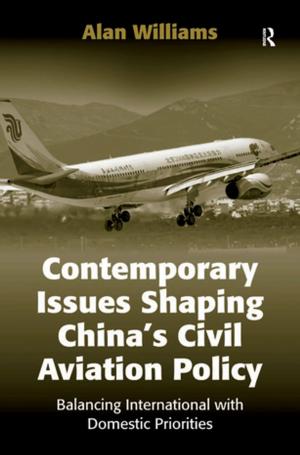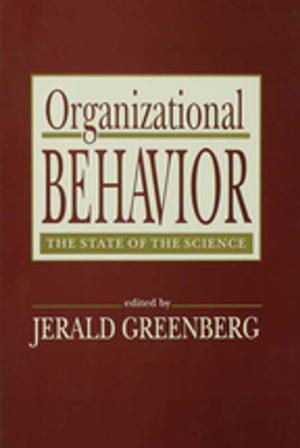Routledge Handbook of Russian Foreign Policy
Nonfiction, Social & Cultural Studies, Political Science, International, International Relations| Author: | ISBN: | 9781134994236 | |
| Publisher: | Taylor and Francis | Publication: | March 20, 2018 |
| Imprint: | Routledge | Language: | English |
| Author: | |
| ISBN: | 9781134994236 |
| Publisher: | Taylor and Francis |
| Publication: | March 20, 2018 |
| Imprint: | Routledge |
| Language: | English |
Providing a comprehensive overview of Russia’s foreign policy directions, this handbook brings together an international team of scholars to develop a complex treatment of Russia’s foreign policy. The chapters draw from numerous theoretical traditions by incorporating ideas of domestic institutions, considerations of national security and international recognition as sources of the nation’s foreign policy. Covering critically important subjects such as Russia’s military interventions in Ukraine and Syria, the handbook is divided into four key parts:
Part Iexplores the social and material conditions in which Russia’s foreign policy is formed and implemented.
Part II investigates tools and actors that participate in policy making including diplomacy, military, media, and others.
Part IIIprovides an overview of Russia’s directions towards the United States, Europe, Asia, the Middle East, Eurasia, and the Arctic.
Part IVaddresses the issue of Russia’s participation in global governance and multiple international organizations, as well as the Kremlin’s efforts to build new organizations and formats that suit Russia’s objectives.
The Routledge Handbook of Russian Foreign Policy is an invaluable resource to students and scholars of Russian Politics and International Relations, as well as World Politics more generally.
Providing a comprehensive overview of Russia’s foreign policy directions, this handbook brings together an international team of scholars to develop a complex treatment of Russia’s foreign policy. The chapters draw from numerous theoretical traditions by incorporating ideas of domestic institutions, considerations of national security and international recognition as sources of the nation’s foreign policy. Covering critically important subjects such as Russia’s military interventions in Ukraine and Syria, the handbook is divided into four key parts:
Part Iexplores the social and material conditions in which Russia’s foreign policy is formed and implemented.
Part II investigates tools and actors that participate in policy making including diplomacy, military, media, and others.
Part IIIprovides an overview of Russia’s directions towards the United States, Europe, Asia, the Middle East, Eurasia, and the Arctic.
Part IVaddresses the issue of Russia’s participation in global governance and multiple international organizations, as well as the Kremlin’s efforts to build new organizations and formats that suit Russia’s objectives.
The Routledge Handbook of Russian Foreign Policy is an invaluable resource to students and scholars of Russian Politics and International Relations, as well as World Politics more generally.
